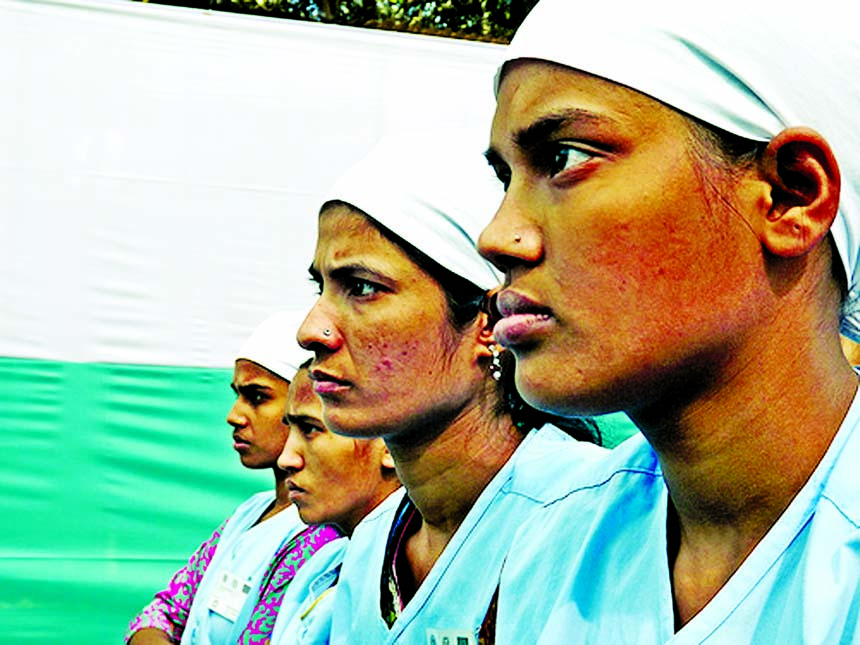
Abu Sazzad :
More than 10,000 young people, including disabilities, received skill development training through Technical and Vocational Education and Training (TVET) Reform Project since its inception in 2007, said European Union (EU) Ambassador Pierre Mayaudon.
“We are extremely satisfied with the outcome and achievements of the TVET programme”, the Ambassador while addressing the closing ceremony of the project at a city hotel on Monday.
Srinivas Reddy, ILO Country Director for Bangladesh, speaking at the ceremony said that the contribution of the International Labour Organization’s (ILO) Technical and Vocational Education and Training (TVET) Reform Project is to establishing a stronger skills development system in the country.
The TVET Reform Project is an initiative of the Government of Bangladesh, assisted by the ILO and funded by the European Union. The goal is to ensure Bangladesh’s competitiveness in the global market and reduce poverty by improving the quality of vocational educational and training.
“During its lifespan the TVET Reform Project has helped address many of the structural weaknesses in the national skills system. Fundamental to this has been the development of a new National Skills Development Policy which provides a firm foundation for the future development of skills in Bangladesh,” said Srinivas Reddy.
The European Union-funded TVET Reform Project started operation here in 2007 until continued till December 2015. In addition to the development of the National Skills Development Policy, its major achievements include the adoption of a National Vocational Qualification Framework (NVQF) by the government.
Te NVQF allows skills gained from all technical training centres to be equally recognized and will greatly aid local workplace mobility. International recognition of these qualifications will also help workers seeking employment opportunities overseas, said Reddy.
The project played a major role in helping bridge the mismatch between industry skills demand and the courses being taught in training institutions. A number of Industry Skills Councils have been created to provide the link between training and employment while public-private partnerships between training institutes and industry have also been successfully launched.
Teaching skills of instructors have been improved with quality and competency standards. The apprenticeship system has been reinvigorated and efforts made to ensure inclusion in the workforce, such as for disabled workers and women. In addition, the Government has reactivated the National Skills Development Council chaired by the Prime Minister to act as a coordination mechanism between various ministries involved in skills development.
Work of the TVET reform project is being built by skills-related initiatives funded by a variety of other donors. Amongst these is the ILO’s Canadian-funded Bangladesh Skills for Employment and Productivity (B-SEP) Project, which aims to make skills in Bangladesh, nationally recognized, accessible to all, higher quality and directly linked to jobs.
Nurul Islam Nahid, Education Minister, A S Mahmud, Secretary for Education Ministry, MikailShipar, Secretary for Labour and Employment Ministry, Ashoke Kumar Biswas, Additional Secretary for Ministry of Education, SalahuddinKashem Khan, President of Bangladesh Employer’s Federation and Shafiuddin Ahmed, President of National Coordination Committee for Workers Education were present on the occasion.

